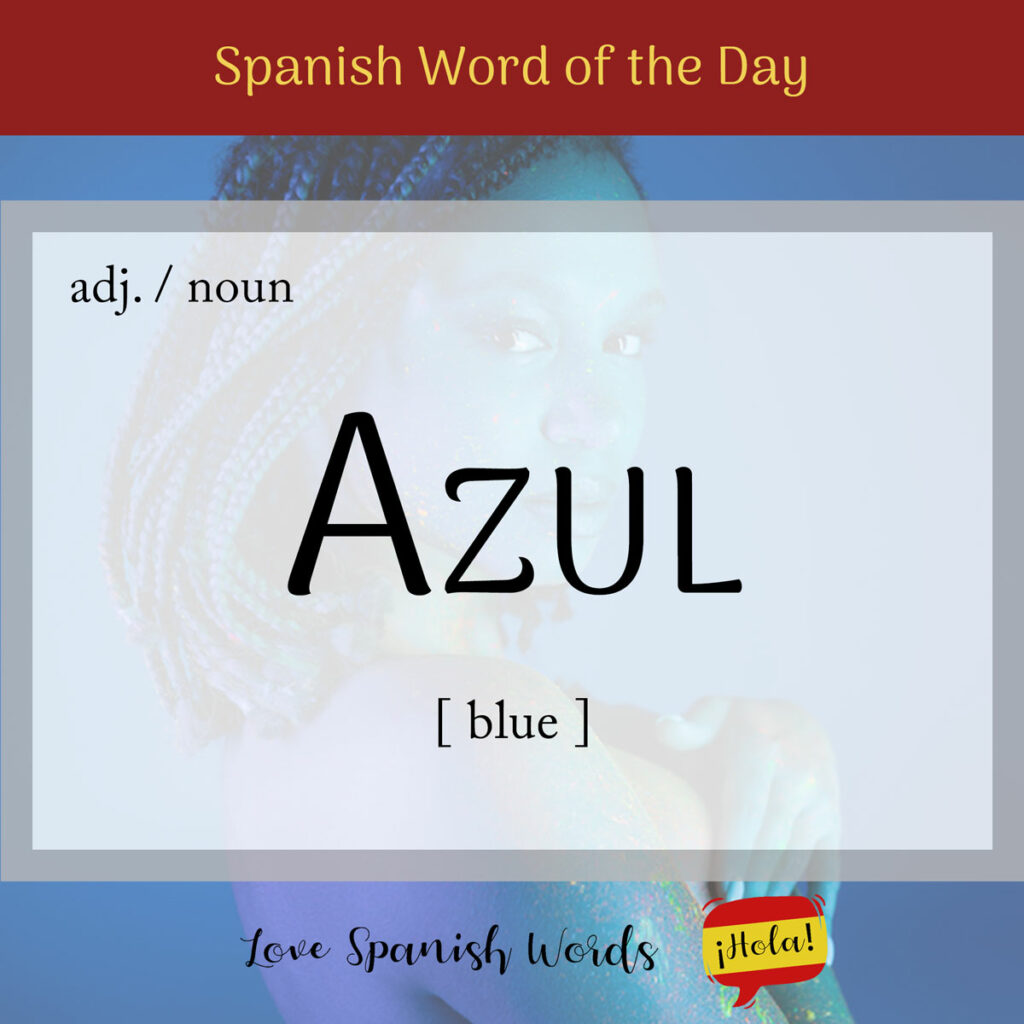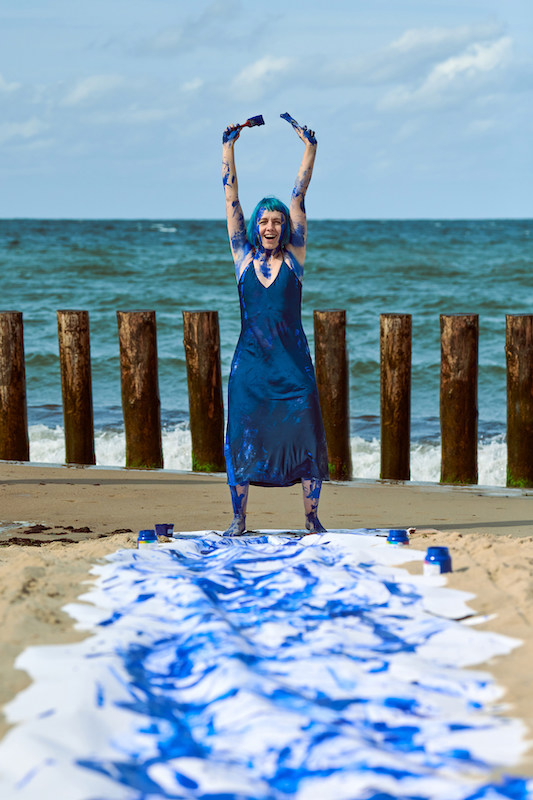The fifth colour in the rainbow is blue. Blue in Spanish is azul and comes from lapis lazuli, lazulī is the genitive form of the Medieval Latin lazulum taken from the Arabic لَازُوَرْد (lāzuward) and Persian لاجورد (lâjvard) both meaning sky or heaven. Lapis is the Latin word for stone, so lapis lazuli literally means ‘stone from the sky‘ or ‘stone from heaven‘.
The Old Spanish word meaning blue, azur, became azul.
Latin American Pronunciation
European Pronunciation

Azul is an adjective and can be both masculine or feminine and the plural form is azules.
Las flores azules son poco comunes.
Blue flowers are rare.
Azul is a masculine noun when describing it as a colour used in painting for example.
The same as in English, there are many different classes and variants of the colour blue, a few of which are listed below:
- azul celeste o claro = light blue
- azul oscuro = dark blue
- azul marino = navy blue
- azul cobalto = cobalt blue
- azul turquesa = turquoise
- azul pavo = peacock blue
And we mustn’t overlook the figurative uses of the word azul:
- mora azul = blueberry
- zona azul = parking zone/pay and display area (Spain)
- día azul = train ticket offer day (RENFE)
- los azules = the police (Mexico)
- los cascos azules = the peacekeeping officers of the United Nations
- término azul = blue rare (steak)

Useful idiomatic expressions featuring azul
Buscar el príncipe azul
Literal translation: to look for the blue prince
English meaning: to search for your knight in shining armour, Prince Charming or your perfect man
Tener sangre azul
Literal translation: to have blue blood
English meaning: to belong to a royal or very rich family

